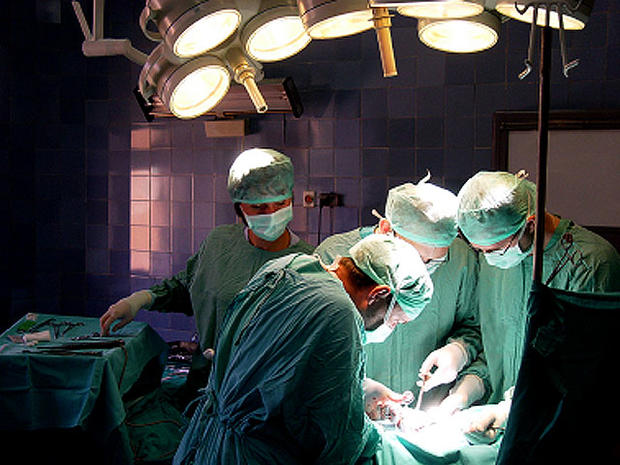Organ transplants tied to cancer: How big's the risk?
(CBS) Organ transplants save lives. But new research suggests they might also up the risk for cancer.
A government study showed that kidney, liver, or lung transplant recipients face double the cancer risk over the general population. The authors say the toll a transplant takes on the immune system might have something to do with it.
A transplant "puts recipients at an increased risk for developing cancer, in part because of medications administered to suppress the immune system and prevent rejection of the organ," study author Dr. Eric A. Engels, a researcher at the National Cancer Institute, said in a written statement. "The cancer risk among transplant recipients resembles that of people with HIV infection, whose risk is elevated for infection-related cancers due to immunosuppression."
For the study - published in the Nov. 1 issue of the Journal of the American Medical Association - researchers looked at about 176,000 transplants from 1987 to 2008. The researchers found nearly 11,000 cancer cases during follow-ups. Risk was seen for 32 types of malignancies, some of which are tied to infections, and others seemingly unrelated.
Transplant recipients were seven times more likely to have Non-Hodgkin lymphoma - a cancer related to immune suppression and Epstein-Barr infection.Other cancers shown to be at an elevated risk were lung, kidney, and liver - most often in recipients of those organs.
In 2010 alone, there were nearly 29,000 organ transplants in the U.S., including 17,000 kidney transplants.
"Suppressing the immune system does increase the risk of cancer," Dr. Darla Granger, director of pancreatic transplantation at St. John Hospital and Medical Center in Detroit, told HealthDay. "And, if you have cancer, you want a strong immune system to fight the cancer," She called that a catch-22.
Can anything be done? The authors said more research needs to be pinpoint what's going wrong.
"We wish to understand how medical conditions and individual immunosuppressive medications may contribute to cancer risk," Engels said. "Clearer understanding of the pattern of cancer risk associated with solid organ transplantation may help future patients have better, healthier outcomes."
WebMD has more on organ transplants.

